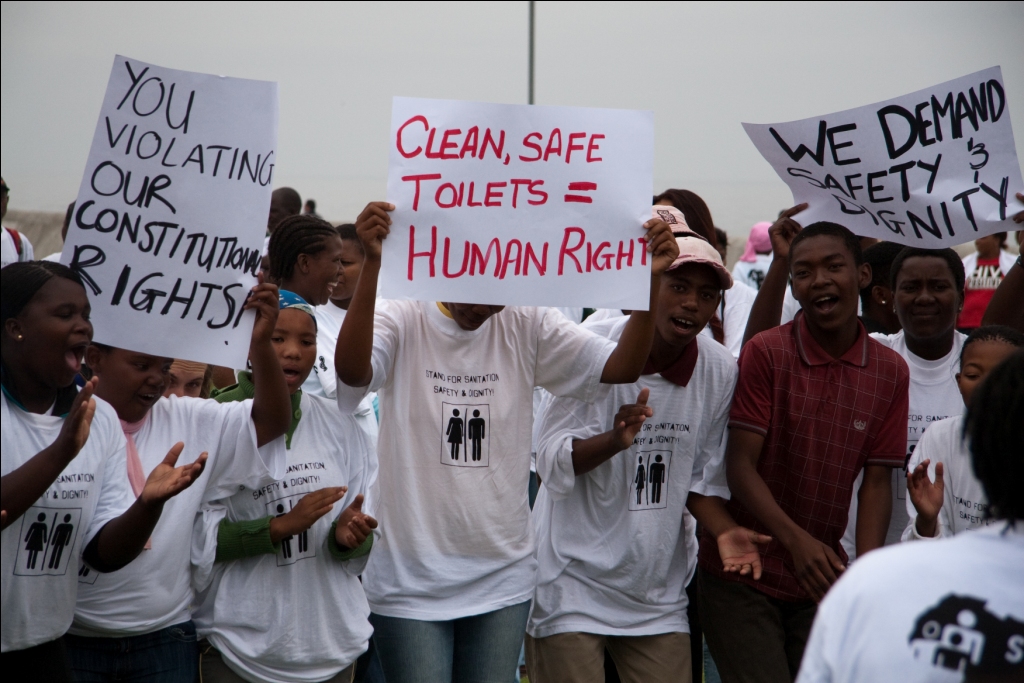Jamming for Sanitation
In some of Cape Town's black townships, residents have to stand in line to use one of the portable chemical toilets made available to them.

Photo: SJC.
The Social Justice Coalition’s Freedom Day toilet queue was quite an achievement, considering that the last time such a large crowd of Capetonians took to the streets in protest was against the US invasion of Iraq. Freedom Day 2011 was different. Roughly 1000 people congregated in and around St George’s Cathedral in downtown Cape Town at noon, to express their frustration at the lack of basic services in the city’s townships.
Key speakers Archbishop Thabo Makgoba and AIDS activists, Vuyiseka Dubula and Zackie Achmat, warmed everyone up by reminding us why we were there: to show solidarity for our brothers and sisters who survive each day without access to clean water, decent toilets or security and to remember those, like Andries Tatane, who lost their lives taking on this post-apartheid struggle.

The gathering doubled as more people poured into the venue and then we walked, 2000 strong followed closely by armed police, to the Cape Town Civic Centre. There we stood in a queue, symbolic of the queues that residents of Site B infomal settlement (Khayelitsha) and Gugulethu and Nyanga townships and other deprived areas in the mother city have to stand in if they want to use one of the portable chemical toilets on offer in their neighborhood.
While we queued, members of the SJC read the petition that over 10,000 people had signed, before a representative of the mayor made his way down the steps of the Civic Centre through a barricade of police to receive it. It was a peaceful demonstration, people stood together, some sang, others danced, thank God no one got shot, but we made our point.


















